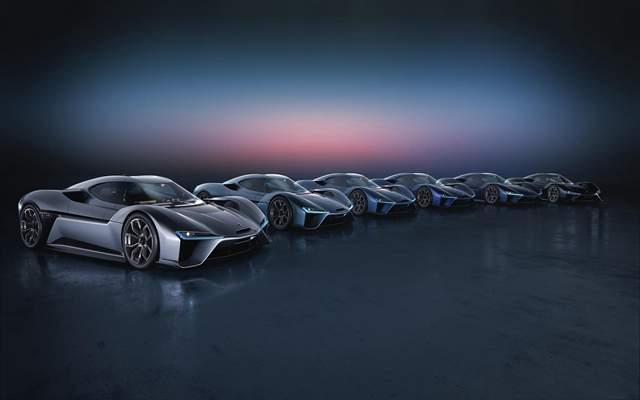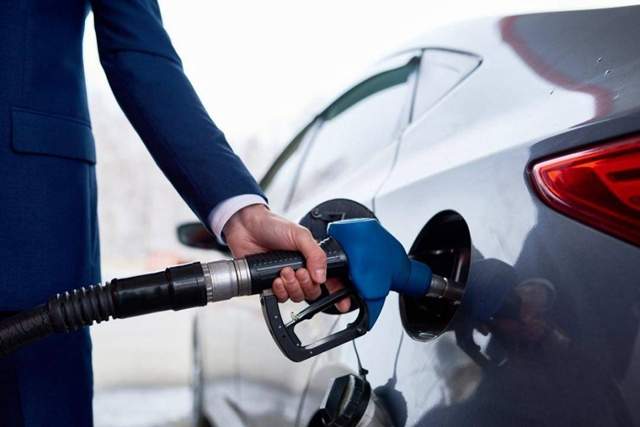Electric Vehicle Sales Plummet, Penetration Drops Below 40%: Intense Fuel Vehicle Counterattack Triggers Bankruptcy Wave
![]() 01/16 2025
01/16 2025
![]() 622
622
The dawn of 2025 seems to herald a challenging period for the entire new energy vehicle (NEV) industry. In the first week alone, sales of several NEV companies witnessed a drastic halving. Recent reports also indicate that some NEV firms mandated employees to purchase their own vehicles, while others faced inaccessible official websites. These developments have cast a pall over the sector.

Observing the broader NEV market, the performance during the first two weeks of 2025 was generally underwhelming. Sales of numerous leading automakers declined markedly compared to the weekly peaks recorded in 2024, causing the NEV market share in the new car market to plummet to 39.4%. Evidently, the sales decline of NEVs has far outpaced that of fuel vehicles.
NEVs enjoyed remarkable success in 2024, with their market share in the new car market nearing 60%. However, since November 2024, this share has trended downwards, slipping to 42% in the penultimate week of 2024 and now dipping below 40%. Clearly, NEVs appear to be losing their luster.
This downturn stems from the fierce counterattack launched by fuel vehicles. The most effective strategy for fuel vehicles to compete with NEVs is price reduction. Models like the Camry and Accord have dipped to around 120,000 yuan, while lower-end options such as the Corolla and Lavida have fallen below 70,000 yuan. These ultra-low prices have rekindled consumer interest in fuel vehicles.
Apart from countering with fuel vehicles, traditional automakers are actively engaging in the NEV market. The luxury brand BMW has introduced multiple electric vehicles at highly competitive prices. By reducing fuel vehicle prices and promoting electric vehicles, BMW retained its position as China's top luxury car brand in 2024.
Domestic traditional automakers have mounted an even more aggressive offensive. Geely has been expanding its footprint in the NEV market with a multi-brand strategy. Monthly sales of NEVs for many Geely brands have surpassed 100,000 units, placing them second in the NEV market. This has exerted tremendous pressure on NEV companies.

Amidst the fierce onslaught from traditional automakers, news of struggling NEV companies emerged in 2024. At least two or three NEV firms faced adversities that year. While they all denied bankruptcy, the reality is evident to all.
Barely half a month into 2025, news of another NEV company in distress has surfaced. These developments have had a profoundly negative impact, which in turn could accelerate their path to bankruptcy.
Automobiles differ significantly from other consumer electronics. Selling cars is merely the beginning; they require lifelong maintenance and repair services, supported by a capital-intensive after-sales service system. Therefore, maintaining sufficient car sales is crucial to sustain this system.
Compared to fuel vehicles, NEVs also need to uphold a charging network, implying that the operational financial burden on NEV companies should be heavier. However, reports indicate that only three NEV companies have achieved profitability thus far. Sustaining the after-sales service system and charging network poses a monumental challenge for these automakers.
As news of multiple distressed NEV companies spreads, consumers are increasingly abandoning them and turning towards larger automakers like Geely and BMW, thereby accelerating the downfall of NEV companies. Hence, it is not far-fetched to predict a wave of bankruptcies among NEV companies in 2025.

Since their inception in 2015, NEVs have undergone nearly a decade of development, affording them ample time to mature. These companies are well aware that the era of consolidation has arrived. Consequently, executives from several automakers have stated that only 3-5 NEV companies will survive. This year will bring forth the conclusion, revealing the survivors.








